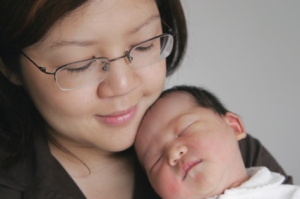Education, and particularly higher education, provides many individuals with hope for a better future. The power of this simple truism was brought home to me while working on Striking a Balance, when I discovered that the union for hotel workers in San Francisco (HERE Local 2) had developed a scholarship program to fund prep courses for college admissions tests. The catch? The program was for the daughters and sons of union members, and not the members themselves. The members are mainly immigrant women, and their vision for a brighter future involves higher education for their children.
A new fact sheet from IWPR describes a related group—students who are also parents. Anyone who has been a parent knows that it is a lot of work, especially when children are young. To make a commitment to higher education at the same time is nothing short of heroic. And those who do so are not starting on a level playing field: compared to non-parent students, the student parents have lower average college admissions test scores, are less likely to have received four years of English courses in high school, and more often take remedial courses, with each of these disadvantages being most pronounced for single parents. The student parents are also likely to come from families in which their own parents had not received an advanced degree, so have fewer academic role models. And just to top it off, the student parents are around twice as likely as the non-parents to work for pay at least 40 hours per week (over 40 percent of single and married parents do this).
Not surprisingly, this story has the same gender twist found in HERE Local 2: three-quarters of single parents in college are women, and single mothers are twice as likely to report spending at least 30 hours per week caring for dependents.
I don’t envy those who take on the triple burden of parenting, school and full-time employment. But I do understand why they voluntarily make such extraordinary commitments. Like the members of HERE Local 2, higher education offers the student parents hope for a brighter future—for themselves and their children. They deserve our applause and support.
Robert Drago, Ph.D., is the Director of Research with the Institute for Women’s Policy Research.
About the author
- IWPR
- IWPR
- IWPR
- IWPR


